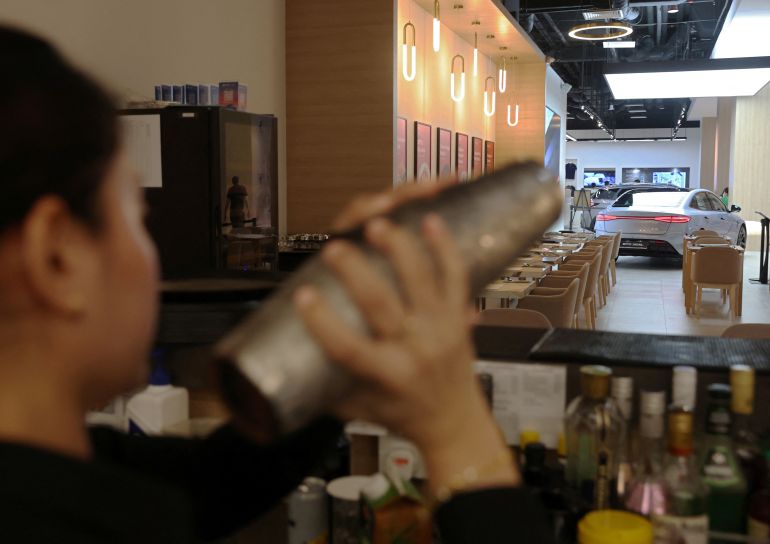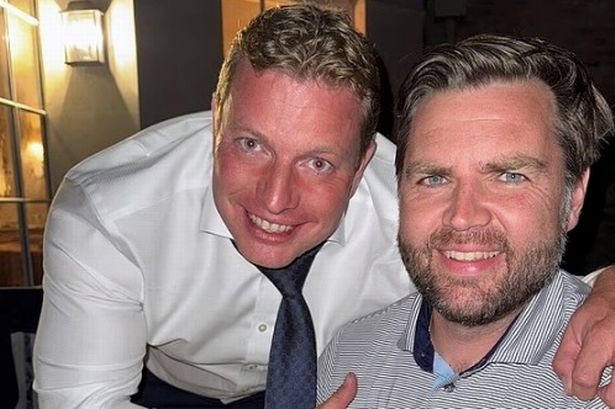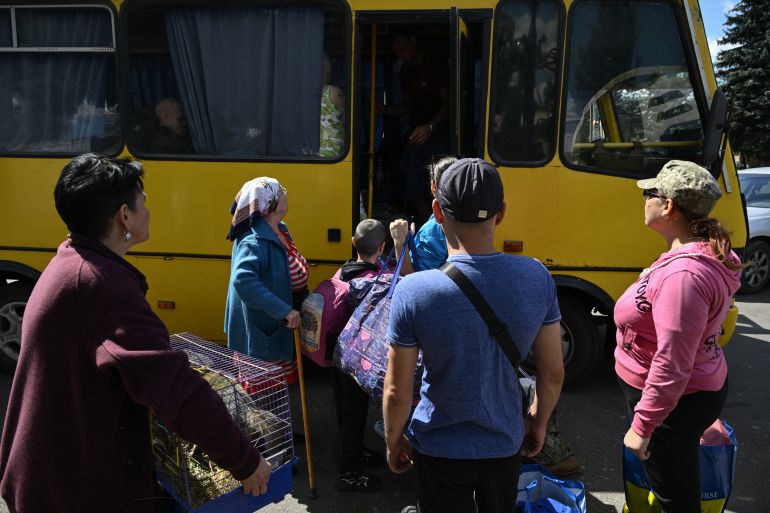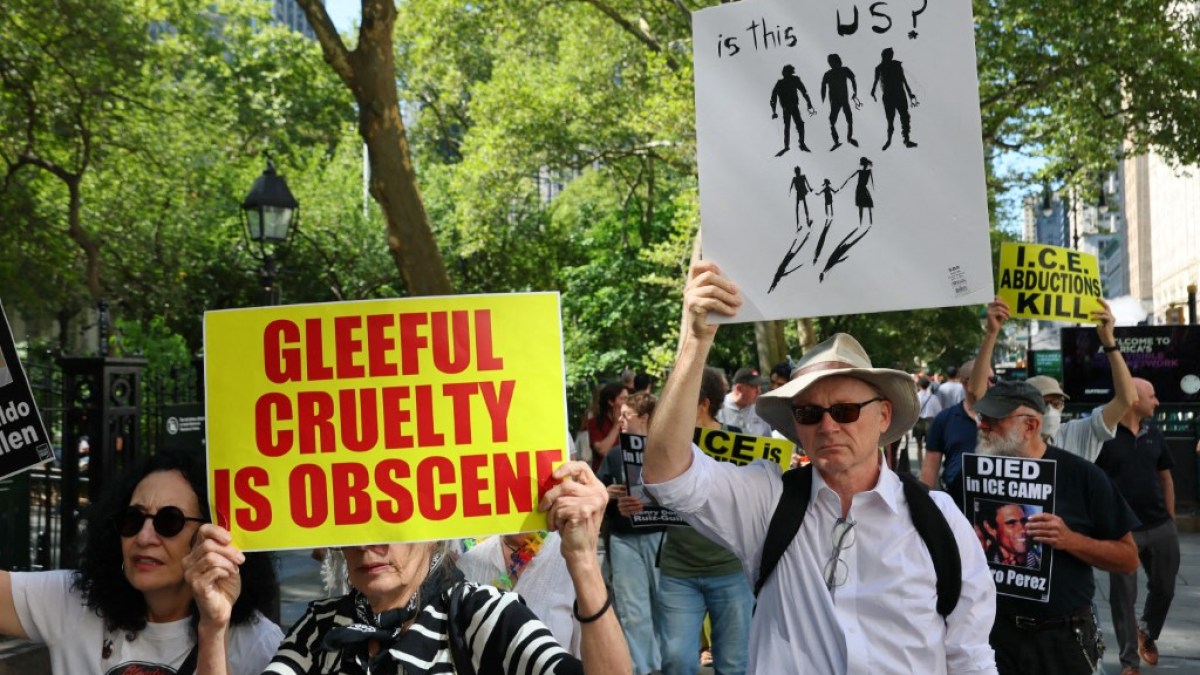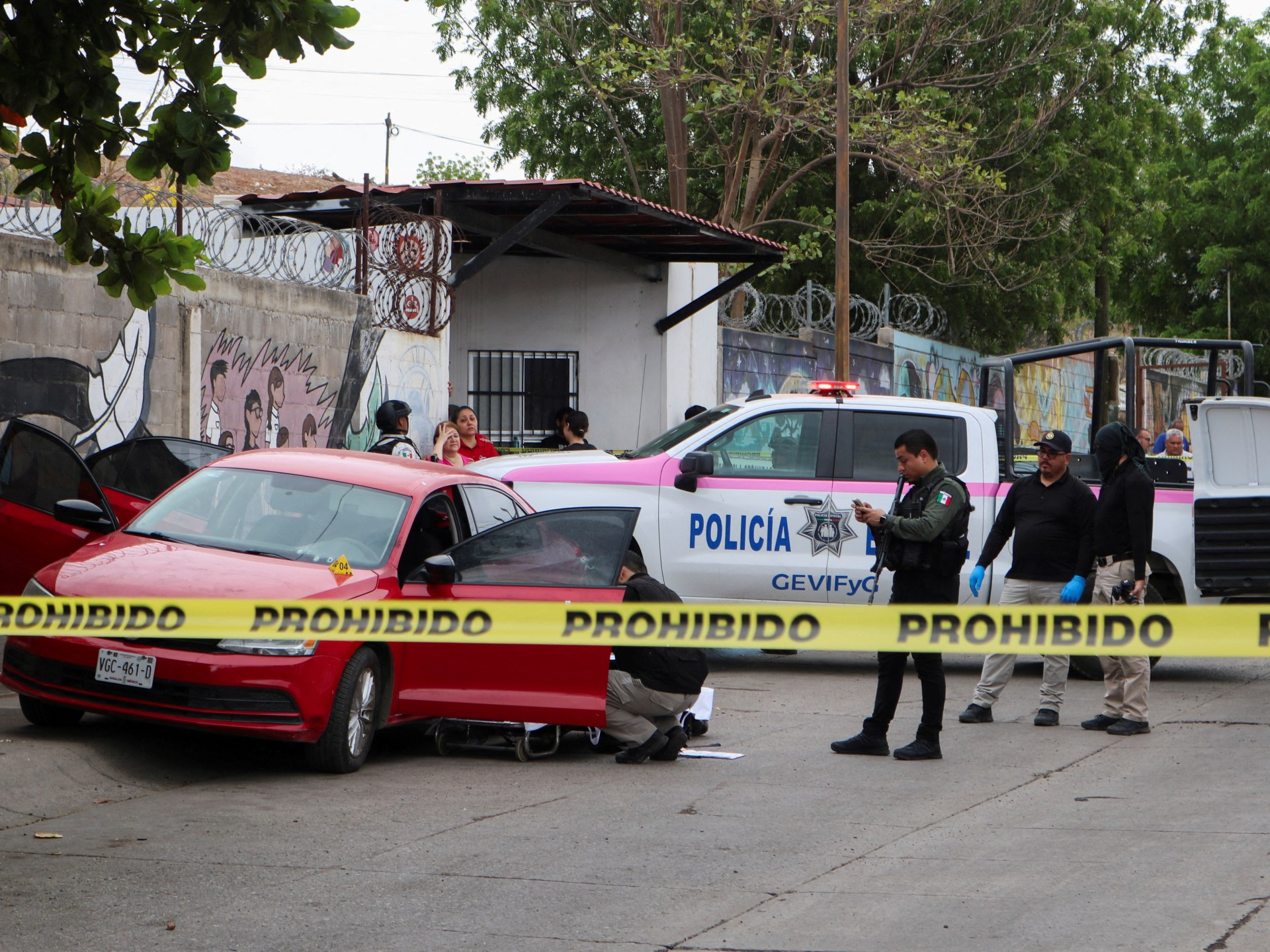Singapore – On a weekday afternoon in the heart of the central business district, the BYD showroom on Robinson Road is a picture of futuristic cool.
Inside, sleek electric cars gleam under bright white lights as young professionals drift through the space.
Just a short walk away, diners mingle in a BYD-branded restaurant over craft beer and bar bites in a chic, members’ club-like setting – one of several lifestyle ventures the Chinese electric vehicle giant has rolled out across Singapore.
It is a scene that reflects a larger shift.
Once seen as cheap and functional at best, Chinese brands are fast becoming desirable – even aspirational – among Singapore’s middle class.
Shenzhen-based BYD was by far the top-selling carmaker in the city-state in the first half of 2025.
The EV maker sold almost 4,670 cars – about 20 percent of total vehicle sales – during the period, according to government data, compared with about 3,460 vehicles sold by second-ranked Toyota.
Many other Chinese brands have also made major inroads, from the tea chain Chagee to toymaker Pop Mart and electronics maker Xiaomi, shaping how Singaporeans work, rest and play.
Singapore and Malaysia had the biggest concentration of Chinese food and beverage brands in Southeast Asia last year, according to the research firm Momentum Works, with 32 China-based firms operating 184 outlets in the city-state as of June 2024.
At the same time, Chinese tech firms, including ByteDance, Alibaba Cloud and Tencent, have chosen Singapore for their regional bases.
Healthcare worker Thahirah Silva, 28, said she used to be wary of the “Made in China” label, but shifted her perspective after a visit to the country last year.
“They’re very self-sufficient. They have their own products and don’t need to rely on international brands, and the quality was surprisingly reliable,” Silva told Al Jazeera.
These days, Silva regularly samples Chinese food brands, often after seeing particular dishes or snacks taking off on social media.
Compared with Japanese or Korean brands, she said, Chinese chains are “creative, quick to innovate and set food trends”, though she admits it sometimes feels like they are “taking over” from local brands.
“Somehow, it made me feel there won’t be much difference visiting China, since so many of their brands are already here”, she said.
For younger Singaporeans, the old stigmas around products “made in China” are fading, said Samer Elhajjar, senior lecturer at the marketing department of the National University of Singapore’s (NUS) Business School.
“Many of these brands are now perceived as cool, modern and emotionally in tune with what young consumers want. They feel local and global at the same time,” Elhajjar told Al Jazeera.
“You can walk into a Chagee and feel like you are part of a new kind of aesthetic culture: clean design, soft lighting, calming music. It is not selling a product. It is selling a feeling.”
Moulded by China’s hyper-competitive e-commerce landscape, Chinese companies have been especially adept at rolling out digitally savvy marketing strategies, Elhajjar said.
“These brands are now playing the same emotional game that legacy Western brands have mastered for decades,” he said.

Singapore, where about three-quarters of the population is ethnic Chinese, is an especially attractive testbed for Chinese brands looking to expand overseas, according to analysts.
Doris Ho, who led a brand consultancy in Greater China from 2010 to 2022, said that Chinese brands have been able to succeed in Singapore with a bold, creative approach to innovation that appeals to local sensibilities.
This “new China edge”, Ho said, shows up in BYD features, such as built-in fridges and spacious, fold-flat interiors that can be used for sleeping, and hotpot chain Haidilao’s extravagant hospitality, which sees customers treated to live music performances, shoeshines, hand massages and manicures.
“When they innovate, they don’t follow the same lines you’d expect. It’s their way of looking at something and coming out with a completely surprising answer,” Ho told Al Jazeera.
For Chinese brands, Singapore offers “a sandbox with real stakes” as a compact, ethically diverse and globally-connected market, Elhajjar said.
Because Singapore is seen as sophisticated, efficient and forward-looking, success in the city-state “sends a powerful message”, he said.
The rise of Chinese brands has coincided with Singapore’s growing reliance on China’s economy.
China has been Singapore’s largest trading partner since 2013, with bilateral trade in goods last year reaching $170.2bn.
As Western firms scaled back or paused expansion, Chinese brands moved in, with many effectively propping up Singapore’s property sector and entrenching themselves in the country, said Alan Chong, senior fellow at the S Rajaratnam School of International Studies (RSIS).
Singapore’s government has also actively courted Chinese firms amid the uncertainty from US President Donald Trump’s arrival on the geopolitical scene, Chong said.
“You see the positive image of the United States slipping quite consistently,” Chong told Al Jazeera.
“The US has acted in a miserly, resentful sort of way with ongoing trade tariffs, whereas China remains a factory of the world – seen as an economic benefactor – so there will be a swing in terms of looking at China favourably.”
Chong said that Singapore has also become a virtual second home for some middle-class Chinese nationals, many of whom own property in the city-state.

Singaporean universities have also made a concerted effort to attract Chinese students, with some even introducing programmes taught in Mandarin Chinese.
In a report released earlier this year by China’s Ministry of Education and the Beijing-based Center for China and Globalization, Singapore was ranked the second-most popular destination for Chinese students after the United Kingdom.
Some analysts have observed the rise of “born-again Chinese” (BAC) – people of Chinese descent outside China, especially in Singapore and Malaysia, who embrace a strong pro-China identity, despite limited cultural or linguistic ties.
Donald Low, a lecturer at the Hong Kong University of Science and Technology, has defined so-called BACs as those who adopt an “idealised, romanticised” idea of a China that is “inevitably rising” and “stands heroically against a hegemonic West”.
The success of Chinese brands in Singapore has not been without some pushback.
Some Singapore residents have felt alienated by stores that operate mainly in Mandarin Chinese, Elhajjar said, given that the city-state has one of the world’s largest immigrant populations, as well as large minorities of native-born Malays and Indians.
There have also been concerns raised about homegrown brands being priced out of the market by the arrival of large firms with deep pockets.
Rising rents resulted in the closure of 3,000 F&B businesses in 2024, the highest number since 2005, Channel NewsAsia reported in January.
In a recent white paper, the Singapore Tenants United for Fairness, a cooperative representing more than 700 business owners, called for curbs on “new and foreign players”.
Leong Chan-Hoong, the head of the RSIS Social Cohesion Research programme, cautioned against blaming Chinese enterprises for social tensions or rising rents, describing the inroads made by some brands as part of the natural cycle of a market-driven economy.
“As a global city-state, we are always at the forefront of such transitions,” Leong told Al Jazeera.

Indeed, for many residents in Singapore, the growing presence of Chinese brands is simply an unremarkable part of daily life.
Ly Nguyen, a 29-year-old Vietnamese migrant working in tech sales, said she started collecting Labubu, the globally popular gremlin-like toys created by Pop Mart, after being captivated by their “ugly but fun” aesthetic.
“Labubu represents independent creativity and a newfound confidence in Chinese-designed memorabilia,” Nguyen told Al Jazeera.
For Nguyen, the popularity of Labubu dolls, which have been spotted with celebrities such as Rihanna and BLACKPINK’s Lisa, points to a generational shift in how Chinese cultural exports are viewed.
